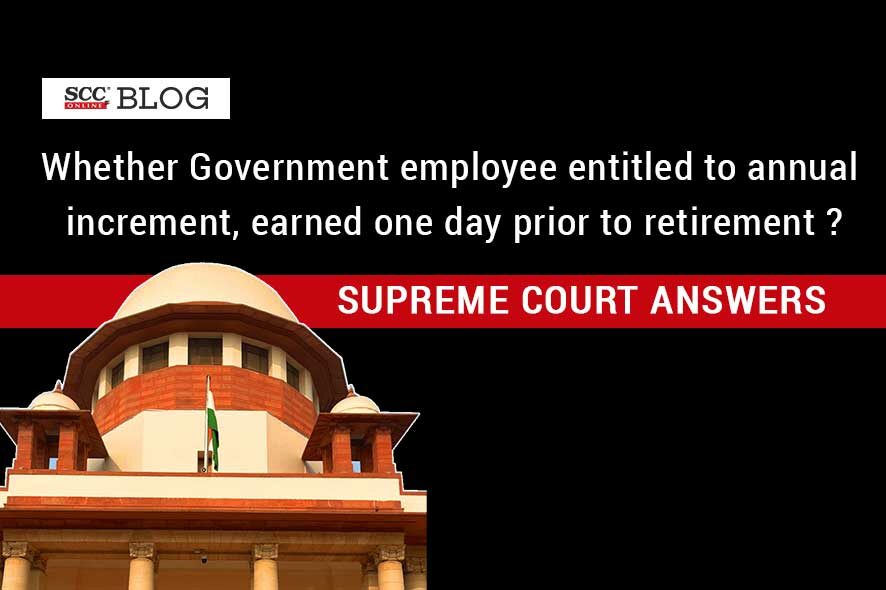Supreme Court: The issue for contemplation before the Division Bench of M.R. Shah* and C.T. Ravikumar, JJ., was whether an employee is entitled to annual increment, earned one day prior to retirement. The Supreme Court while dismissing the instant appeal, upheld the judgement of High Court of Karnataka, directing the appellants to grant one annual increment, earned by the government employees on the last day of their service.
Background
Annual increment was denied by the Corporation on the ground that the day on which increment accrued the employees were not in service. The Single Judge dismissed the petition filed by the employees. Subsequently, filed an appeal in the High Court against the order of the Single Judge.
The High Court of Karnataka ruled in the favour of the employees and directed the Karnataka Power Transmission Corpn. Ltd. to grant one annual increment which the employees had earned one day prior to the retirement on attaining the age of superannuation. Aggrieved by the order, Corporation preferred the instant appeal.
The rationale of the judgment of the High Court was based on the decision of the High Court of Andhra Pradesh in Union of India v. R. Malakondaiah, 2001 SCC OnLine AP 1113, where the High Court upheld the benefit of increments for the services rendered during the year preceding to the retirement.
Contentions
The Corporation pointed out that decision of AP High Court in R. Malakondaiah is overruled in an subsequent judgment passed by the Full Bench of AP High Court in Principal Accountant General v. C. Subba Rao, 2005 SCC OnLine AP 47. It was further contended that different High Courts have divergent view on the same issue.
Appellant further drew attention of the Court on the words used in Regulation 40(1) of the Karnataka Electricity Board Employees Service Regulations, 1997, which stated that an increment accrues from the day following that on which it is earned, hence, the Corpn. denied the annual increment on the ground that the day on which the increment accrued the respective employees were not in service.
Analysis and Decision
The Court found no substance in the argument that increment is a form of incentive and are granted to encourage an employee to perform well therefore, once an employee is not in service, there is no question of increment. It was held, “increment is earned on one year past service rendered in a time scale”. The object and purpose of ‘increment’ was further discussed by the Court and it was noted that “increment is earned for rendering service with good conduct in a year/specified period”.
The Court observed that merely because, the government servant has retired on the very next day, cannot be denied the annual increment which he has earned and/or is entitled to for rendering the service with good conduct and efficiently in the preceding one year.
Conclusion
The Supreme Court acknowledged the divergent views taken by various High Courts and opined that the ground presented by Corpn. cannot be a valid ground for denying increment. The concept of day following which the increment is earned has otherwise no purpose to achieve. The Court further observed that such ground also offends the spirit of reasonableness enshrined in Article 14 of the Constitution of India.
The approach of the Court was that the entitlement to receive increment therefore crystallises when the government servant completes requisite length of service with good conduct and becomes payable on the succeeding day.
Appeal dismissed.
[KPTCL v. C.P. Mundinamani, 2023 SCC OnLine SC 401, decided on 11-04-2023]
*Judgment authored by Justice MR Shah
Advocates who appeared in this case :
For the appellant: Huzefa Ahmadi, Senior Advocate;
For the respondent: Mallikarjun S. Mylar, Advocate.







